
Brazilian jiu-jitsu is among the most popular and well-celebrated martial arts in the world, with millions over the globe. It's commonly a means for self-defense, a way to teach oneself discipline, or even just a hobby for enthusiastic martial arts fans.
But what exactly is Brazilian jiu-jitsu, and what sets it apart from other combat sports?
In this article, we'll be going over everything you need to know about Brazilian jiu-jitsu. We'll look into its origins, a general overview of what it is, and different levels and ranks in the sport.
For those looking to enroll in a class, we'll also be looking into the benefits of Brazilian jiu-jitsu, how to get started learning, and what to expect once you've begun.
Let's get straight into it!
What is Brazilian Jiu-Jitsu?
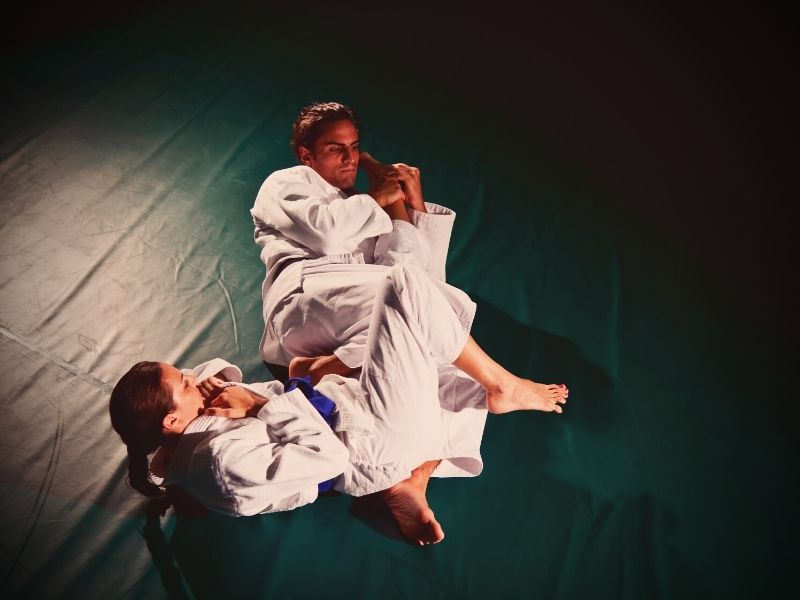
Brazilian jiu-jitsu, commonly abbreviated as BJJ, is a popular martial art that and combat sport that focuses on grappling and ground fighting.
Brazilian jiu-jitsu emphasizes using principles and techniques such as weight distribution, ground-based fighting, and submission holds to force an opponent to submit--even if that opponent is larger and stronger.
Students are taught how to control and subdue an opponent, and they'll be using a variety of chokeholds, joint locks, and submission techniques to achieve this goal.
It's this premise that has allowed BJJ to thrive as one of the most effective martial arts for self-defense. Its maneuvers, often built around immobilizing an opponent and controlling a fight, have time and time again proven just how effective they can be.
History Of BJJ
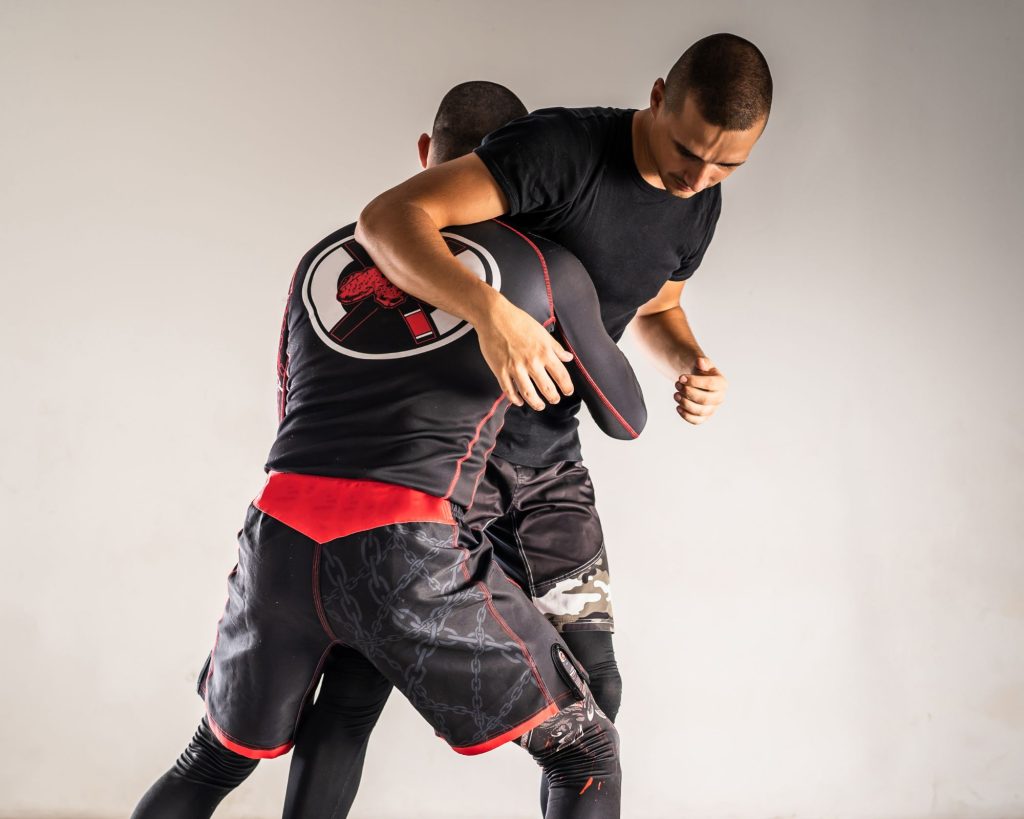
In 1904, Mitsuyo Maeda, a renowned expert in Kodokan's groundwork, was sent abroad to showcase and promote Judo to the world.
During his travels to various countries, he demonstrated "jiu-do" and accepted challenges from wrestlers, boxers, savate fighters, and other martial artists. He eventually arrived in Brazil on November 14, 1914, and from there, he'd teach the Gracie brothers.
The brothers themselves would eventually go on to found Brazilian Jiu-Jitsu. Its earliest beginnings can be traced back to 1925, when the group of brothers were first being taught self-defense by a Mitsuyo Maeda.
Although many people believe that Brazilian Jiu-Jitsu was developed after World War II, between September 1945 and the Summer of 1946, there are claims that it was actually the Japanese war criminals who had fled to Brazil (or surrounding areas) to escape prosecution for their crimes.
Along with their Nazi counterparts, these Japanese soldiers who were educated in Japanese Jiu-Jitsu began teaching the locals their skills as a means of making a living and obtaining support. Over time, their teachings evolved into the Brazilian Jiu-Jitsu style we know today.
Regardless, the Gracie brothers, along with their family, soon after implemented what they'd learned into their own unique style, dubbing it Gracie jiu-jitsu, which flourished into the popular brand of Brazilian jiu-jitsu we have now.
Benefits of Brazilian Jiu-Jitsu
Brazilian Jiu-Jitsu is a martial art that offers a multitude of benefits to its practitioners. One of the most significant advantages of practicing BJJ is the improvement of balance, coordination, and flexibility. As a result, you can develop a better sense of control over your body and movements.
In addition to physical improvements, BJJ can also have a positive impact on your mental health. The sport requires focus, discipline, and concentration, all of which can help to enhance your ability to stay happy, present, and engaged in various aspects of life.
Another benefit of BJJ is the development of self-confidence and self-esteem. The practice of BJJ provides students with a sense of achievement and progress as they learn new techniques and skills.
This newfound confidence can be applied to various other aspects of life, such as work, relationships, and personal goals.
Furthermore, BJJ can also improve your physical fitness and strength. The sport provides a full-body workout that can develop strength, endurance, flexibility, and coordination. Regular practice can also help you lose weight and improve your overall physical condition, including the development of cardiovascular and respiratory capabilities.
Apart from these benefits, BJJ can also help to reduce stress and anxiety. The physical exertion and mental focus required during training can act as a form of therapy, allowing practitioners to release tension and clear their minds.
Next up, BJJ can improve reflexes and reaction time, which can be useful in various situations. Finally, the lifestyle that accompanies the practice of Brazilian Jiu-Jitsu, such as stretching and healthy eating, can contribute to an overall sense of wellbeing.
So in general, Brazilian Jiu-Jitsu provides a range of benefits that extend beyond physical fitness and self-defense. The sport can have a positive impact on mental health, confidence, and overall well-being.
How to get started in Brazilian Jiu-Jitsu
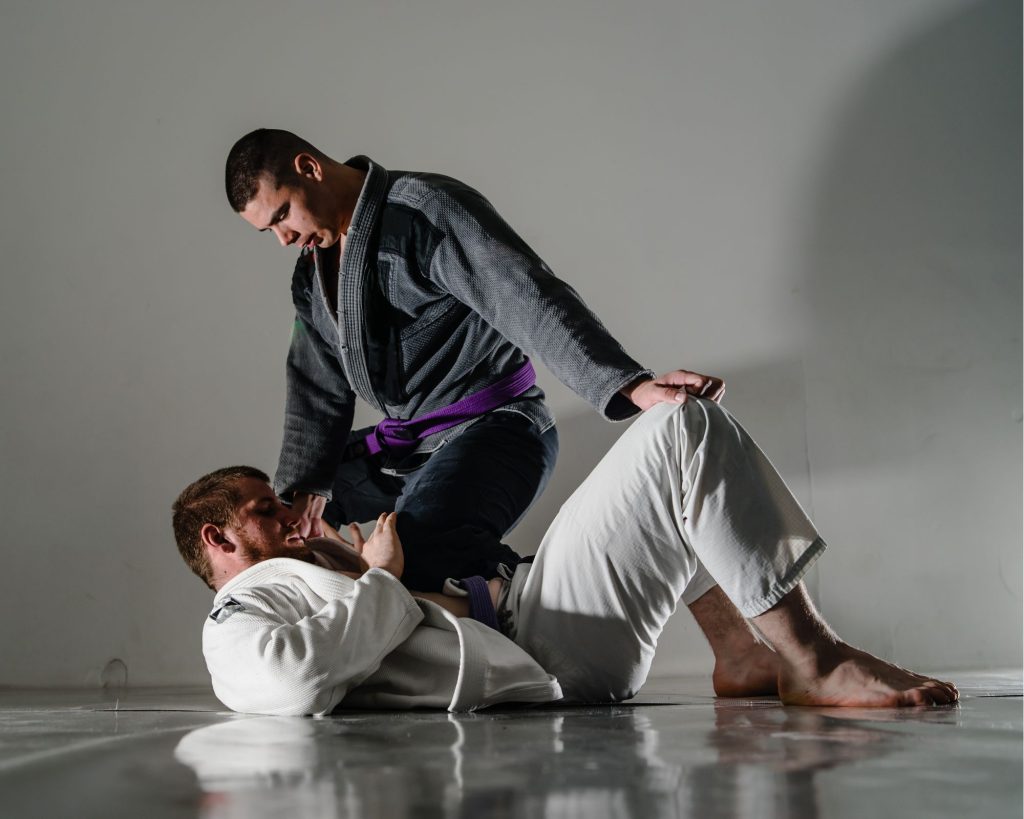
Starting your journey in Brazilian Jiu-Jitsu can be both exciting and overwhelming. However, with the right mindset and approach, you can make the most out of your training experience.
To begin, it's essential to research various Brazilian Jiu-Jitsu schools and find one that resonates with your personal goals and beliefs.
Once you've identified a potential school, attend a trial class to get a feel for the atmosphere and instructors. This will give you an opportunity to gauge if the school is a good fit for you.
Next, focus on learning the basic techniques, principles, and forms of Brazilian Jiu-Jitsu under the guidance of a qualified instructor. Consistent practice is key to developing your technique and understanding of Brazilian Jiu-Jitsu principles.
In addition to regular practice, challenging yourself through attending workshops and seminars, sparring with other practitioners, and seeking new opportunities for growth within the Brazilian Jiu-Jitsu community will accelerate your progress.
Watching and studying Brazilian Jiu-Jitsu masters can also be a great source of inspiration and new insights into the art. Remember to approach your practice with humility and an openness to learning, as Brazilian Jiu-Jitsu is a journey of continuous improvement and self-discovery.
Different Brazilian Jiu-Jitsu Ranks
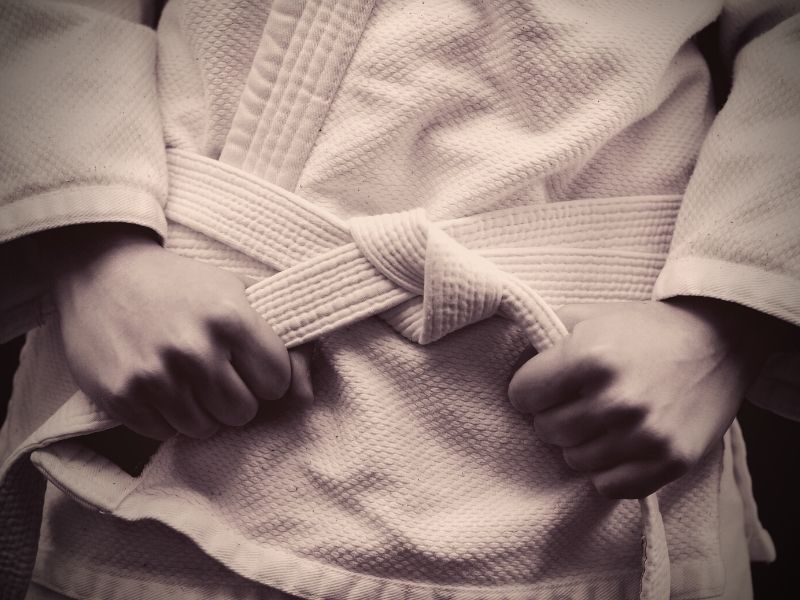
Brazilian Jiu-Jitsu has a unique system of ranks, which can be somewhat confusing for beginners. In order from lowest to highest, the ranks are: white belt, blue belt, purple belt, brown belt and black belt.
The higher your rank, the better your understanding of and technical skill in the sport.
The first belt in Brazilian Jiu-Jitsu is the white belt. This rank is held by any practitioner new to the art and has no prerequisite.
A white belt's training will focus on the basics of Brazilian Jiu-Jitsu: learning how to position oneself on the ground, how to execute submissions and how to defend against them.
The second adult rank in Brazilian Jiu-Jitsu is the blue belt. At the blue belt level, students gain a wide breadth of technical knowledge and undertake hundreds of hours of mat-time to learn how to implement these moves efficiently.
The purple belt is the intermediate adult ranking in Brazilian Jiu-Jitsu. The IBJJF requires a practitioner remain a purple belt for a minimum of 1.5 years before they can be promoted to brown belt.
The IBJJF requires a practitioner remain a brown belt for a minimum of 1 year before they can be promoted to black belt. Aside from the exceptional belts awarded at the highest levels, brown belt is right about the highest ranking color belt in Brazilian Jiu-Jitsu.
The coveted black belt is the highest ranking in Brazilian Jiu-jitsu. To achieve this rank, a practitioner must have an extensive knowledge on all aspects of Brazilian Jiu-jitsu and must have demonstrated proficiency in all areas of the art.
The Importance of A Good BJJ Instructor

Finding the right BJJ instructor for you is crucial, and it can often mean the difference between success and failure in the sport.
Should you nab a knowledge, experienced instructor, then you can expect him to foster in you a deeper appreciation of the sport that will go well beyond your dojo.
If everything goes well, then they will equip you with guidance and support you need as you progress through your training. They will instill in you the discipline and determination that Brazilian jiu-jitsu practitioners are so well-known for.
Choosing the right mentor isn't just a matter of enrolling into a class. It's choosing the way you enter and interact with the world of Brazilian jiu-jitsu itself.
Some Movies With Brazilian Jiu-Jitsu
Some cool movies that display Brazilian Jiu-Jitsu are:
- Warrior (2011)
- Never Back Down (2008)
- Rollerball (2002)
- Only the Strong (1993)
- The Quest (1996)
Additionally, some television shows that feature Brazilian Jiu-Jitsu are:
- Naked and Afraid XL
- American Ninja Warrior
- Ultimate Beastmaster
- The Ultimate Fighter
Notable Figures In Brazilian Jiu-Jitsu

And, just in case you wanted to do some more research, here are some notable figures who practice or have practiced X
These are some notable figures and interesting people who have practised the art ofBrazilian Jiu-Jitsu:
- Ronda Rousey: Former UFC Women's Bantamweight Champion, Olympic Judo medalist
- Demian Maia: Current UFC Welterweight contender and multiple-time Brazilian Jiu-Jitsu World Champion
- Royce Gracie: The face of the early UFC tournaments, a member of the famous Gracie family and multiple time Brazilian Jiu-Jitsu World Champion
- Eddie Bravo: Notable for popularizing the 'Rubber Guard' technique in mixed martial arts competition
- Kron Gracie: Son of Rickson Gracie and current professional Mixed Martial Artist competing in RIZIN and the UFC
- Saulo Ribeiro: 6-time Brazilian Jiu-Jitsu World Champion and founder of the University of Jiu-Jitsu competition team
These are just a few examples, of course. There are many more notable practitioners who have found success in various disciplines utilizing Brazilian Jiu-Jitsu.
The Wrap-Up
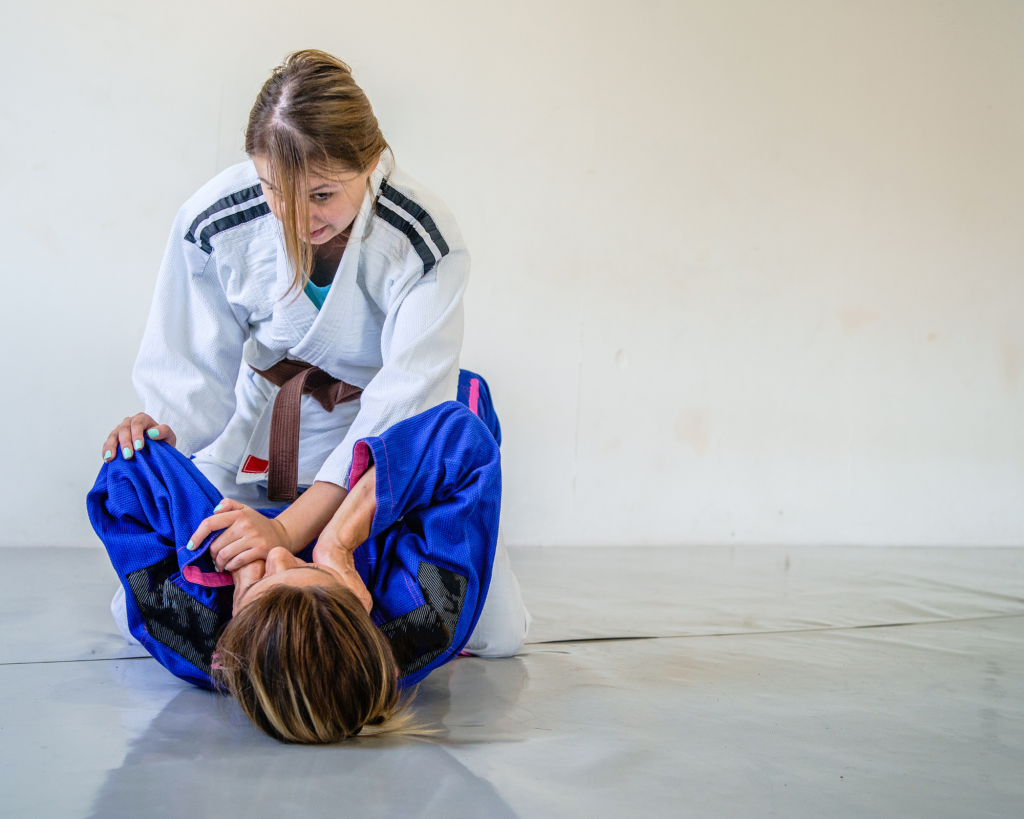
Brazilian Jiu-Jitsu is much more than just a martial art. It is a way of life, a community, and a journey of self-discovery. Through its practice, one can gain physical and mental strength, as well as a deep understanding of oneself and others.
Brazilian Jiu-Jitsu encourages its practitioners to be humble, disciplined, and constantly striving for growth. So no matter what your exact goal is--if are looking for self-defense skills, improved fitness, or a new passion--Brazilian Jiu-Jitsu has something to offer.
So why not give it a try and see where the journey takes you? Who knows, you might just surprise yourself with what you can achieve--both on and off the mat!
[author-box-jpx-fitness]
